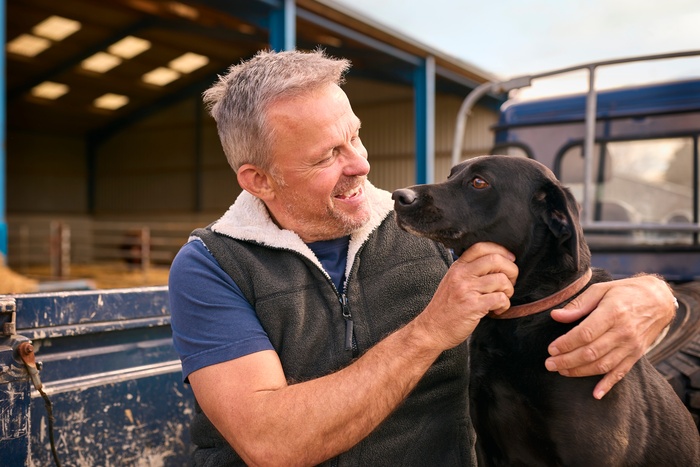Farm life requires a delicate balance between practicality and emotional support, especially as children transition into adulthood. When kids leave for college, families often look for ways to maintain both routine and reassurance on the property.
Farm dogs deliver structure, comfort, and protection all in one steady presence. Choosing the right dog creates new rhythms at home while grounding parents during major transitions.
Suited for the Task
Working farms demand dogs that can process movement, maintain spatial awareness, and remain steady around unpredictable activity. Australian Kelpies manage tight flocks by anticipating shifts in direction before livestock even break their formation, which prevents overcorrection and reduces stress on both animals and handlers. Larger breeds like Anatolian Shepherds stand at the edge of fields or property lines, watching for threats that might escape human notice and responding only when presence turns to pressure.
Some dogs perform better when they stay close to home, rather than ranging far beyond fences or pastures. South African Boerboels remain alert without fixating on movement, holding their position with the strength to stop predators like coyotes without escalating situations unnecessarily. Families with children often choose dogs that are physically powerful and emotionally steady, especially when young kids move between barns, pens, and living areas unaccompanied.
More Than a Guard
Farm dogs create a quiet visual cue that outsiders recognize immediately—someone or something will react. When you see a dog patrolling the driveway, barn path, or fenceline, you gain peace of mind without needing to check cameras or alerts. That peace lasts longer than batteries or notifications.
By walking a pattern each day, a dog establishes a clear presence that discourages unfamiliar vehicles or strangers from entering. Even the sound of a single bark at dusk can reset your awareness across the entire property. One clear advantage of farm dogs for security and companionship is their ability to do this work without orders or programming.
Emotional Balance and Daily Rhythm Support
Dogs provide families with structure during chaotic times, especially when older children leave and younger ones stay behind. When you feed a dog before sunrise or take it out after dinner, you participate in a shared rhythm that resets the day. Rhythm keeps emotional energy from drifting as routines shift during college drop-offs or visits.
Kids returning for the weekend often seek out the dog first, rather than their room or the fridge. Familiar paws, a wagging tail, and steady eyes provide something school can’t offer. Among the strongest advantages of farm dogs for security and companionship, few rival their emotional intelligence during transitional moments.
A Long-Term Companion for Family Transitions
Well-matched dogs grow with families, adapting to changes in routine, housing, or energy levels. When one child moves out and another grows into bigger responsibilities, a dog continues to provide consistency without drama. Older dogs set the tone for new pets, keeping the farm’s energy predictable.
Dogs never ask for explanations when a house gets quieter or when routines change during holidays. Instead, they keep moving forward, no matter what the season brings. Long after school decisions fade, those steady companions still sit by the gate waiting for someone to come home.





